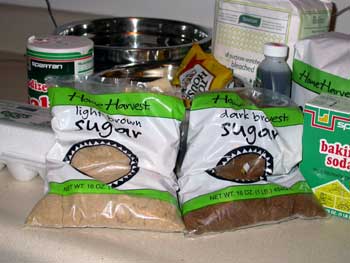February 28, 2005
Maxitronix 300-in-1
I decided i was interested enough in learning more about how electronics work to spend money on it. Upon the recommendation from the folks at the new Make magazine, i picked up a Maxitronix 300-in-1 electronic project kit from the folks at Elenco (available here, here, and here). It's got a ton of interesting projects and will probably keep me busy for the next few weeks. I've got to start by learning how to read these resistors: black = 0, brown =1, red = 2, ...
February 26, 2005
Chess for pacifists
I met up with Jason Masters today and he wondered what it would be like if you played chess with the goal of not capturing any of the opponent's pieces. He had a board handy so we gave it a shot. We added the condition that your pieces may never move backward; and, for the pieces that move laterally, they may never cross over the same square twice. You win when your opponent is forced to take one of your pieces or he is forced to put you in check mate. I won when Jason ran out of moves thanks to some unfortunately placed pawns. We then returned to normal rules where he proceeded to wipe me off the board. Lesson: looking at ordinary objects in extraordinary ways can be very entertaining.
My head could explode at any moment
Yesterday at work we had some folks from Priority Health in to do a health screening for those employees who wished to participate. They measured our body fat percentage, cholesterol, glucose levels, and blood pressure. My body fat was ok, my glucose levels were normal, and my cholesterol levels kicked ass. However, according to my blood pressure measurements, my head could explode at any moment. If you have anything to say to me before i pass on, i'd do it now.
OK, it's not quite that bad, but i think i did win the prize for worst blood pressure in the department. In fact, we spent most of the day walking around comparing the scores of private medical information to see who was the most or least healthy in each of the categories. It was a good Friday distraction.
February 20, 2005
Verbs is a noun
I caught a River City Improv show this weekend. They played mime debate where they divide into two teams and try to get one of the other of the members of the team to say a noun, adjective, and verb which have been suggested by the audience by miming out the words. So when Michele solicited suggestions for an adjective, i offered up "transitive." I didn't think it would be all that hard but they always seem to get a bit freaked out by big words. Michele questioned wether it was actually an adjective. Russ was on stage and was familiar with "transitive verbs" so he pointed out that example as proof of its grammatical categorization. That got Michelle even more confused because she know that adjectives had to modify nouns and in the example it was modifying "verbs." Finally Russ had to explain that "verbs is a noun." That was one of my favorite parts of the show.
I should add that after all of that hemming and hawing, they finally accepted the word and played the game. The new girl, Mel, cleverly put together "train," "sit," and "hive" to get the word out. After they got it, the audience gave them some of the biggest applause of the night.
LaTeX mod spacing
In my modern algebra class, we've been working extensively with congruence modulo n. LaTeX has several options for typesetting these statements in the amsmath package. Here you can see what they look like:

Statements 1 and 2 were rendered using "1 \equiv 4 \mod{3}" and "-1 \equiv 2 \bmod{3}" respectively. Generally the methods using parenthesis are preferred. We also have two standard versions of those. Statement 3 uses "\pmod" and Statement 4 uses "\pod". I prefer the way "\pmod" renders however, despite claiming to reduce the spacing before the parenthesis in non-display mode, it stills leaves too big a gap for my taste.
I thought i would share this trick i found in a guide on the Dartmouth College website. It suggested defining a new command to reduce the amount of space and make everything look better. Statement 5 is rendered using this new "\imod" command. Here's the defintion:
\makeatletter
\def\imod#1{\allowbreak\mkern10mu({\operator@font mod}\,\,#1)}
\makeatother
February 15, 2005
Veterinary valentines
I'm pretty sure all of my Valentines have been delivered by now. If i had your current mailing address, there's a good chance you got one. For the past few years i've tried to find some of the most "interesting" cards and send them out. This year i got "Puppies and Kittens."

The box itself cracked me up. As a super bonus, each card came with a temporary tattoo featuring the head of a little cat or dog. My favorite was the card featuring a dog with a stick in its mouth with the caption "I think you're fetching." I only hope you enjoyed yours as much as Kevin did. Till next year!
February 14, 2005
Wearing my heart on my neck
I don't wear my bow ties all that often anymore; but, in honor of today, i thought i would pluck Romeo off the tie rack.
And in case you were wondering, i tie it myself. Happy Valentine's Day!
February 12, 2005
Penmanship on the brain
My handwriting has become awful. (In truth, it has never been all that great to begin with.) Creating letters with the movement of the hand, like any other skill, must be practiced to be done well. Ever since i've graduated from high school, i've learned to type nearly all my notes or other communications. I don't think i've tried to make cursive letters since grade school. I simply don't have the fine digit control to produce well formed letters anymore.
I think many people just assume that writings come naturally because they forgot about all the time they spent practicing. I suppose parents are probably reminded of this when they see their kids start to write their names on paper. If you want an example to remind you of how tricky writing can be, i recommend trying to quickly write out a bunch of ampersands. (I'll give you bonus points if you can draw it without looking at it on the keyboard.) If you are like most people, you probably didn't spend a lot of time in school learning how to make this symbol. I'm going to guess that you will also find it awkward and difficult to consistently make good looking ampersands unless you practice.
I also dislike writing on paper because it forces you to think in a certain way. When using a pen, you must put all your ideas together in your head before you start writing them out line by line. This pre-composition is necessary if you would like your output to have a logical train of thought. Typically when i start typing at the computer, i'll form clumps of ideas on the page to give me an overview of where i want to go. If a really great sentence pops into my head, i just type it and set it aside for later rather than trying to remember it until i'm ready to use it. I'm always moving things around to make it just right.
The reason this is bothering me now is because of all the writing i've been having to do for class. When i'm taking a test, i'm not worried that i won't know how to do the problem; i'm worried that i won't have enough time to get it all out. I have to take the occasional break to give my wrist a rest. There was a recent New York Times article that referenced a report that shows that students with bad handwriting performed less well on test because they had to use so much brain power just to get the words down on paper. You'd think we'd be at the point by now where we could use laptops on our exams. Aren't most kids nowadays growing up at they keyboard?
It seems to me that the mind must adapt itself to work depending on the means available to express itself. I've trained myself to think in a way that works best at a computer. The same applies to other types of thinking. As a programmer, i've learned to think in terms of VB, SQL, or XSLT language and syntax. I'm apparently not the only one this happens to. 43Folders' Merlin Mall shares how he has subconsciously started marking-up (or rather, marking-down) the things he writes on paper with a syntax normally reserved for the web. I find this all fascinating, especially when i began to wonder just how must the things we can think of may be limited by the words we have available to express them.
February 08, 2005
Reading Code
I've really been enjoying this book called Code. In it, the author, walks though the history of how humans were able to make machines that follow instructions. It begins with a discussion on the telegraph, both talking about the amazing way in which we can encode information in dots and dashes as well as the properties of electricity that make the device work. He continues though topics such as non-decimal number systems, logic gates, boolean algebra, circuit diagrams, braille, and UPC codes. Ever since i started playing with GIF files i've become interested in lower level computer operations. It brings together a lot of the things that are interesting me right now. It makes me really want to make my own electrical device of some sort. I think i might stop by a Radio Shack this weekend just to see what's there. It would be even more fun to make some sort of mechanical adding machine with a large wheel you have to crank to perform calculations. Retro-tech is cool.
Normally i wouldn't say such nice things about a book until i've finished it; i'm only about half way thought it. However, even if the rest is lousy, what i've read so far has been entertaining enough to give me a favorable impression.
Was that Roger?
Of course i wasn't actually watching American Idol, but if i had i might have thought that one of the guys on it looked familiar. If i had seen his face contort in a very distinct way when he sang, i might have thought that he looked an awful lot like the guy who played Roger in Rent when it was in Grand Rapids. There might even be others who agree.
February 06, 2005
Brown sugars
I was feeling a bit ambitious at the grocery store so i picked up a pack of Nestle Toll House Morsels and bought all the ingredients from the recipe on the back to make my own chocolate chip cookies from scratch. The only problems i had was that the recipe called for brown sugar and there wasn't just brown sugar on the shelf; there was light brown sugar or dark brown sugar. I thought i would pickup up a pack of the dark brown sugar because, well, it was more brown than the other stuff.
I thought i should check with my sister to see if that was OK. She told me that when a recipe calls for brown sugar, it means light brown sugar. She said dark brown sugar was "for old people" but would probably work. I also spoke with my friend Katie and asked her for her opinion as well. She said i should go out and buy some light brown sugar and just throw the dark stuff out. My cooking am item of this complexity already being inherently prone to errors, i choose to minimize the risk of an inedible outcome and went ahead and got some light brown sugar.

My cookies turned out just fine. Although i did leave the last batch in the oven a bit too long and they are a bit darker than i would like, i at least know it has nothing to do with the sugar i used. Now i need to figure out what on earth this dark stuff is good for.
[Grammatical note: I think this might be the first post where i used a nominative absolute.]
February 03, 2005
Bingo
We're playing Bingo again at work. It's so much fun. Every employee received a Bingo card last week, and each day a new number is picked (with a bonus number on "Two-For-Tuesdays" and "Just-For-Fun-Fridays"). There are prizes for the first person to fill a diagonal, horizontal line, a vertical line, and four corners. After each of those four contests are won, we continue playing on the same card until someone fills his up. We actually programmed a database-driven Bingo board on the Intranet a few years ago and every time we play we dig the link up.

Unfortunately for me, i'm having a streak of bad luck. I'm 0 for 5. It doesn't take a math major to figure out that the odds of that happening are about 7:1 (although it doesn't hurt). That means 86% of our employees probably have at least one number by now. It's not as though i expected to get all the numbers so far (i know there's only a 0.24% chance of that ever happening); but one wouldn't hurt.
February 01, 2005
Missed calls
This is how it should work. If i call you, you are unable to take the call, and i choose not to leave a message, you should not call me back.
If i need something from you, i will tell you what i need and how to give it to me. If i called just to chat, i will let you know that in a voicemail as well. Isn't that what normal people are supposed to do? This silly caller ID thing is screwing everything up. It should only be used for screening calls, not returning them.
If i don't leave a message that can mean one of two things. First, it's likely i dialed the wrong number. This happened last week at work. I thought i had the right number, but was greeted by a voicemail message that i did not recognize. I just hung up. About an hour or so later, i get a call. Some guy says "yeah, some one called me from there." I said "It was i. I dialed the wrong number. I bet you feel like a dumb ass now, uh loser?" OK, maybe i didn't say the last part, but i thought it. I've also carelessly dialed a number thinking it was going to be one friend's number, but it turns out to be someone else's. If they answer i'll make up come reason for calling, but if they don't answer i should be off the hook. It's no fun telling someone that you didn't want to talk to them. The only other reason i wouldn't leave a message is because i need information immediately and any other times out side this window would be useless. For example, let's say i was on the syndicated version of Who Want's To Be A Millionaire hosted by Merideth Vieria and i'm asked the $125,000 question and i don't know it. If i choose to phone a friend, and they're not home, what's the point in leaving a voicemail message. It's best if you don't call me back because i'm not going to be very happy with you (even though i ended up using my 50/50 and guessing the answer correctly).
As you can probably tell, i'm not a huge fan of the phone in general. I think there are certain standards of telephone etiquette that should be maintained or it just gets worse. If i'm crazy, tell me so.
